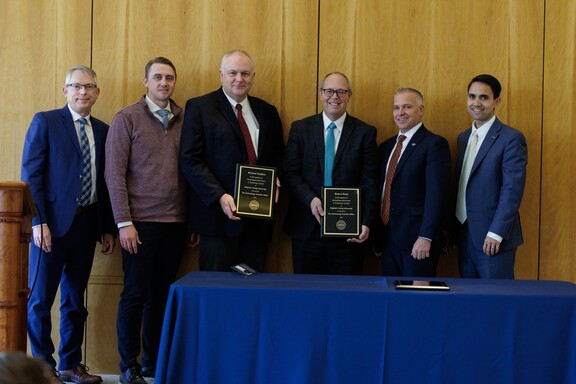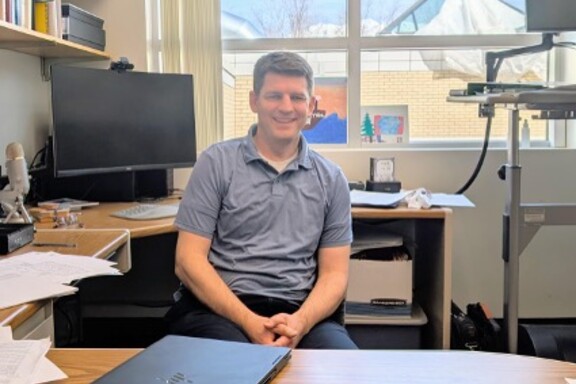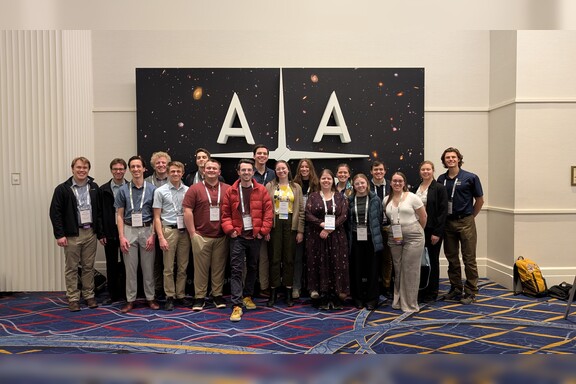
BYU Physics and Astronomy Professors Dr. Davis and Dr. Vanfleet recently received the 2024 award for outstanding achievement in technology transfer from the BYU Technology Transfer Office. This award recognizes their efforts in transferring intellectual property from the university to industry, leading to practical applications. Their work on material physics, including leveraging carbon fibers and carbon nanotubes, has allowed them to develop technology that has led to advances in x-ray detection, chemical analysis, and health analysis and monitoring.
Over the years, Dr. Davis and Dr. Vanfleet have successfully transferred intellectual property including patents and know how to external companies that often fund the BYU research. The creation and transfer of these technologies have been a long-term effort, spanning more than 20 years and resulting in over 30 issued patents. Along the way, they have mentored 81 undergraduates and 22 graduate students in research.
One of their recent developments involved miniaturizing a short-wavelength infrared spectrometer resulting in a 3 mm × 4 mm × 14 mm sensor. They used a carbon nanotube composite collimator in the spectrometer, which has resulted in an increase in resolution in diffuse light applications like wearable optical monitoring. The collimator selects for light perpendicular to the spectrometer sensor, blocking off-axis light and resulting in higher spectral resolution. This spectrometer technology was licensed to Live Tula for wearable health monitoring.
For 20 years, Drs. Davis and Vanfleet have endeavored to connect the education and industrial worlds by introducing businesses and organizations to new technologies while connecting students with industrial research and potential employers.

Scanning Electron Micrograph of Carbon Nanotube Collimator
Student Authors: Authors: Nathan Van Dyke, Carter Colton, Nicholas LeVar
Edited by Faculty of BYU's Dept. of Physics and Astronomy
News and Events











